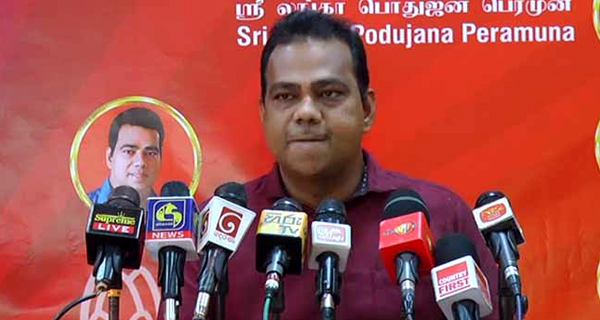The recent statement made by the Colombo District Parliamentarian of the Sri Lanka People’s Front Jagath Kumara has raised debate these days. The statement made by a government MP against two powerful ministers representing the ruling party can be described as one of the moments when the internal crisis within the government came public view.
The main basis for MP Jagath Kumara’s allegation is the transfer of the OIC of the Padukka Police Station and the appointment of a new OIC loyal to Minister Gamini Lokuge. He also alleges that the Minister in charge of the Police also supported Lokuge’s Minister in this process.
Throughout Sri Lanka’s post-independence history, appointments, transfers and promotions of government officials, especially police officers, have been made at the behest of ruling party politicians. For this reason, investigations into very important cases completely collapsed. Law enforcement has become something that only happens for political reasons. Like corruption, crime increased rapidly, and large numbers of criminals were socialized due to the failure of any investigation into it. That is why some criminals even came to Parliament. As a result, our criminal investigation mechanism collapsed and public confidence in the judiciary was severely eroded.
As a solution to this, a great deal of discussion was created in the society for the independent and efficient functioning of the public service including the police and the judiciary. As a result, nine independent commissions, including the Public Service Commission and the Police and Judicial Service Commission, were created by the 17th Amendment to the Constitution in 2001 to create an independent public service.
This 17th Amendment is a step forward in taking this country forward. As a result, all matters including promotions, transfers and appointments of public servants came under the purview of these commissions. These commissions were also tasked with investigating public complaints about the public service.
The National Police Commission was entrusted with the task of recruiting, transferring or promoting all ranks except the Inspector General of Police. The Commission was also tasked with investigating allegations of misconduct by police officers as well as misconduct by senior officers.
After the establishment of these commissions created by the 17th Amendment, the situation changed significantly. Government officials began to act with some independence without fear or suspicion. As a result, significant progress was being made by the majority of the people in the country.
But this situation was a headache for some politicians representing the ruling party. This is due to the fact that many government officials who have been dancing to their tune up to now are doing their duty without regard to politicians.
For that reason, this situation only lasted for about 9 years. The 18th Amendment to the Constitution introduced by the Mahinda Rajapaksa government made all these commissions nominal councils. So the old game had to spread again in the public service. No public servant was able to keep his back straight.
Somehow this situation again created a huge opposition in the country. In May 2015, the Good Governance Government, which came to power in 2015 with the strength of these forces, again brought in the 19th Amendment to the Constitution to allow these commissions to function independently. As a result, the functioning of the public service was once again undergoing a change.
However, opposition to the independence of state institutions, including the police, in this way came from within the government of good governance, but the leaders of good governance at the time were able to control it.
Meanwhile, government protests erupted on a number of occasions. One such instance was when Palitha Thewarapperuma, then a Deputy Minister of the Government, broke into a school to protest against the non-admission of children as per his order and hung himself on a fan in the principal’s office.
However, the principal did not act as the Minister wanted and the police arrested the Minister and produced him in court. The incident came less than two months after the passage of the 19th Amendment. The relevant Minister was arrested on July 05, 2015.
A similar incident was reported in Nawalapitiya in 2018, when former government MP Ananda Aluthgamage went on a fast in front of the police station to protest against the OIC’s refusal to visit his constituency at around 3 in the morning. The OIC should be transferred immediately. We have seen in the media that the Minister in charge of the Police is being threatened that he will go on a deadly fast if he does not do so. (https://www.youtube.com/watch?v=N7NVfiibsSc) However, Ananda Aluthgamage had to abandon his fast, leaving aside the transfer of the relevant OIC. It showed how these commissions have blocked the taking of action against any public official outside the law, no matter how powerful the politicians.
However, this situation turned upside down again in October 2020. The country returned to a worse situation than it was under the 20th Amendment to the Constitution. However, the 20th Amendment was supported by all members of the Government as well as several members of the Opposition. It was also supported by a majority of the country’s electorate. They have indirectly contributed to the establishment of lawless rule as well as to the creation of a country free of crime and corruption.
We are also saddened by the problem facing MP Jagath Kumara today. But you have to understand that it is based on a situation you have created yourself. You are also responsible for this situation.
